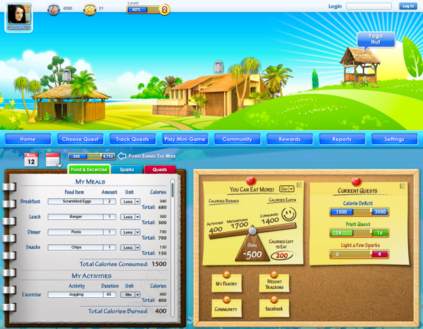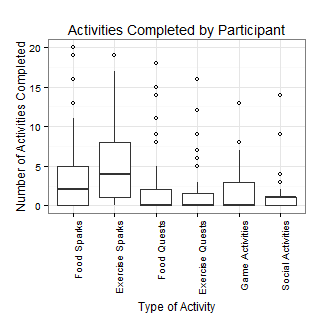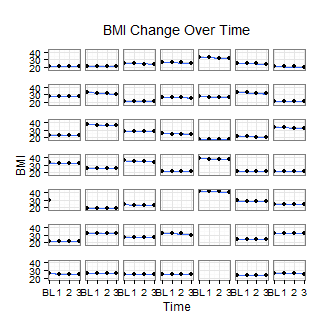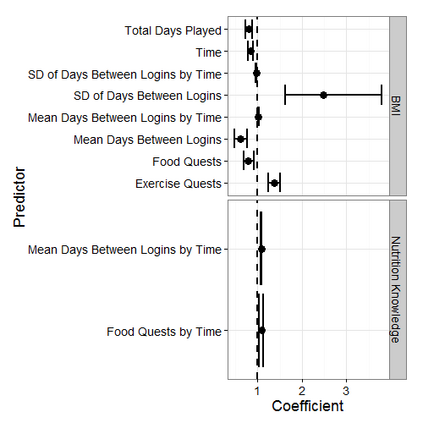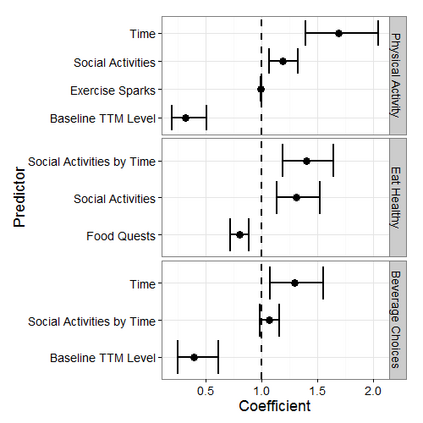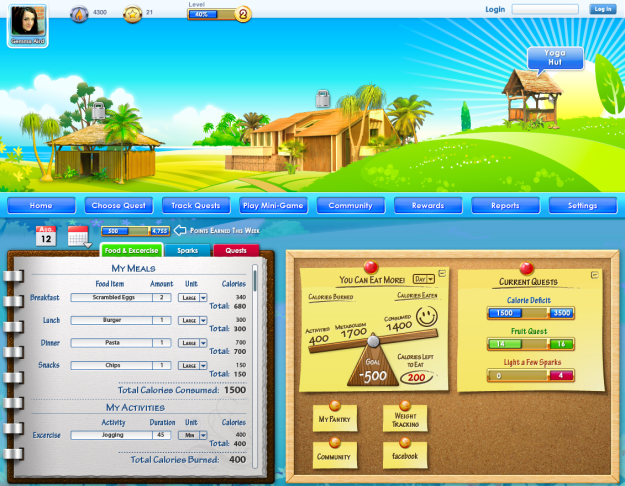Outcome-driven studies designed to evaluate potential effects of games and apps designed to promote healthy eating and exercising remain limited either targeting design or usability factors while omitting out health-based outcomes altogether, or tend to be too narrowly focuses on behavioral outcomes within a short periods of time thereby less likely to influence longitudinal factors that can help sustain healthy habits. In this paper we argue for a unified approach to tackle behavioral change through focusing on both health outcomes and cognitive precursors, such as players' attitudes and behaviors around healthy eating and exercising, motivation stage and knowledge and awareness about nutrition or physical activity. Key findings from a 3-month long game play study, with 47 female participants indicate that there are clear shifts in players' perceptions about health and knowledge about eating. This paper extends our current understandings about approaches for evaluating health games and presents a unified approach to assess effectiveness of game-based health interventions through combining health-based outcomes and shifts in players' cognitive precursors.
翻译:旨在评价旨在促进健康饮食和锻炼的游戏和应用程序的潜在效果的以结果为导向的研究,无论是针对目标的设计或可用性因素,还是完全忽略基于健康的结果,还是往往过于狭隘地侧重于短期内的行为结果,从而不太可能影响有助于维持健康习惯的纵向因素。在本文中,我们主张采取统一办法,通过注重健康结果和认知前体,例如行为者围绕健康饮食和锻炼的态度和行为、动机阶段和知识,以及对营养或体育活动的认识,解决行为变化。一项为期三个月的游戏研究得出的关键结论,有47名女性参与者表示,行为者对健康和饮食知识的看法有明显转变。本文扩展了我们目前对健康游戏评价方法的理解,并提出了一种统一办法,通过将基于健康的结果与参与者认知前体的变化结合起来,评估基于游戏的健康干预措施的有效性。

